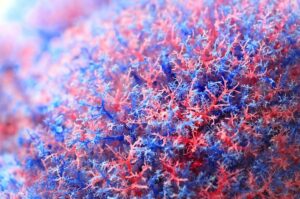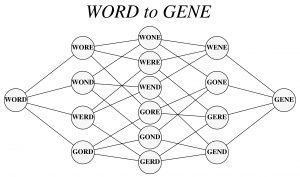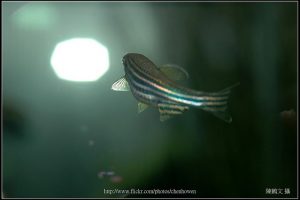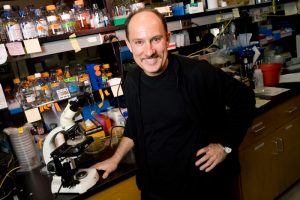Enter your address to receive notifications about new posts to your email.
Articles tagged Evolution
(105 results)
-
Ctenophore genome assembly combed for evolutionary clues
Scientists generated a karyotype, chromosome-scale genome assembly, and manual genome annotation for a common ctenophore. Ctenophores—beautiful marine invertebrates also known as “comb jellies”—have long fascinated and perplexed biologists. Phylogeneticists believe that either ctenophores or sponges were the first organisms to branch off from the tree of life, making them the “sister clade” to all other…
-
How an anti-fungal medication can stop new blood vessel formation
Discovery of thiabendazole target explains vascular disrupting action. Even after hundreds of millions of years of evolution, some yeast genes persist mostly intact in humans and other vertebrates. Despite the huge differences between yeast and humans, these genes perform the same molecular function in both organisms but have been adapted over time into new contexts.…
-
In Memoriam: Richard Lewontin
Dick on sabbatical and my good fortune Guest post in memory of Richard Lewontin by Thoru Pederson. When I was a graduate student in the Zoology Department at Syracuse University, a visiting professor took an office across the hall from the lab where I was stationed. He came “across” to me (not a cis-trans test…
-
Ching-Ho Chang to give Larry Sandler Memorial Lecture at #Dros21
Don’t miss the eagerly-anticipated Larry Sandler Memorial Lecture in the Opening Session of the 62nd Annual Drosophila Research Conference! The Larry Sandler Memorial Lecture is presented by an outstanding recent PhD graduate on the opening night of the Conference. This year, the Larry Sandler Awardee is Ching-Ho Chang, who will present the following lecture based…
-
Yeast regain long-lost traits
Yeast circumvent Dollo’s Law and reacquire traits lost tens of millions of years ago from distant relatives. Dollo’s Law, first proposed in the 19th century, holds that evolutionary losses are irreversible — if a species discards a complex trait, it will never reacquire exactly that trait. However, a study published in Genetics highlighted one way that unicellular fungi can…
-
James F. Crow Award talks at TAGC 2020
The James F. Crow Early Career Researcher Award recognizes outstanding achievements by students and recent PhDs presenting their work at the Population, Evolutionary, and Quantitative Genetics (PEQG) Conference, which was part of TAGC Online in 2020. The 2020 winner and finalists for this prestigious PEQG award spoke in a high-profile session at the conference. Check…
-
One life, many ideas: A centennial homage to John Maynard Smith
Guest post by C. Brandon Ogbunugafor, Assistant Professor at Brown University. John Maynard Smith, born in London on January 6, 1920, was one of the great iconoclasts of the post neo-Darwinian synthesis era, a cult figure whose life was defined by notable contributions across a wide breadth of subfields [1]. He not only authored numerous…
-
Coffee and epistasis: a scientific story of sips and SNPs
Guest authors C. Brandon Ogbunugafor and Rafael F. Guerrero demystify higher order epistasis through a short story about the perfect brew. Epistasis is the flavor of the month Epistasis is one of the most popular and provocative topics in modern genetics. It has many different definitions, but one especially useful one is that epistasis is…
-
Finding fresh mutations
Improved duplex sequencing identifies spontaneous mutations in bacteria without long-term culturing. Spontaneous mutations are the driving force of evolution, yet, our ability to detect and study them can be limited to mutations that accumulate clonally. Sequencing technology often cannot identify very rare variants or discriminate between bona fide mutations and errors introduced during sample preparation.…
-
An ancient regulator of sex development
A Wnt protein involved in the formation of the human ovary plays an important role in female zebrafish sex development. Even though zebrafish are a well-studied research model, how these fish develop into males or females remains rather obscure—in part because the sex of lab strains is not determined by sex chromosomes. Research published…
-
2019 Edward Novitski Prize awarded to Joseph Heitman
Prize recognizes extraordinary creativity and ingenuity in genetics research. Joseph Heitman, MD, PhD of Duke University is the recipient of the 2019 Genetics Society of America (GSA) Edward Novitski Prize. Heitman is honored for his work on human fungal pathogens and for identifying the molecular targets of widely-used immunosuppressive drugs. The latter work proved to…











